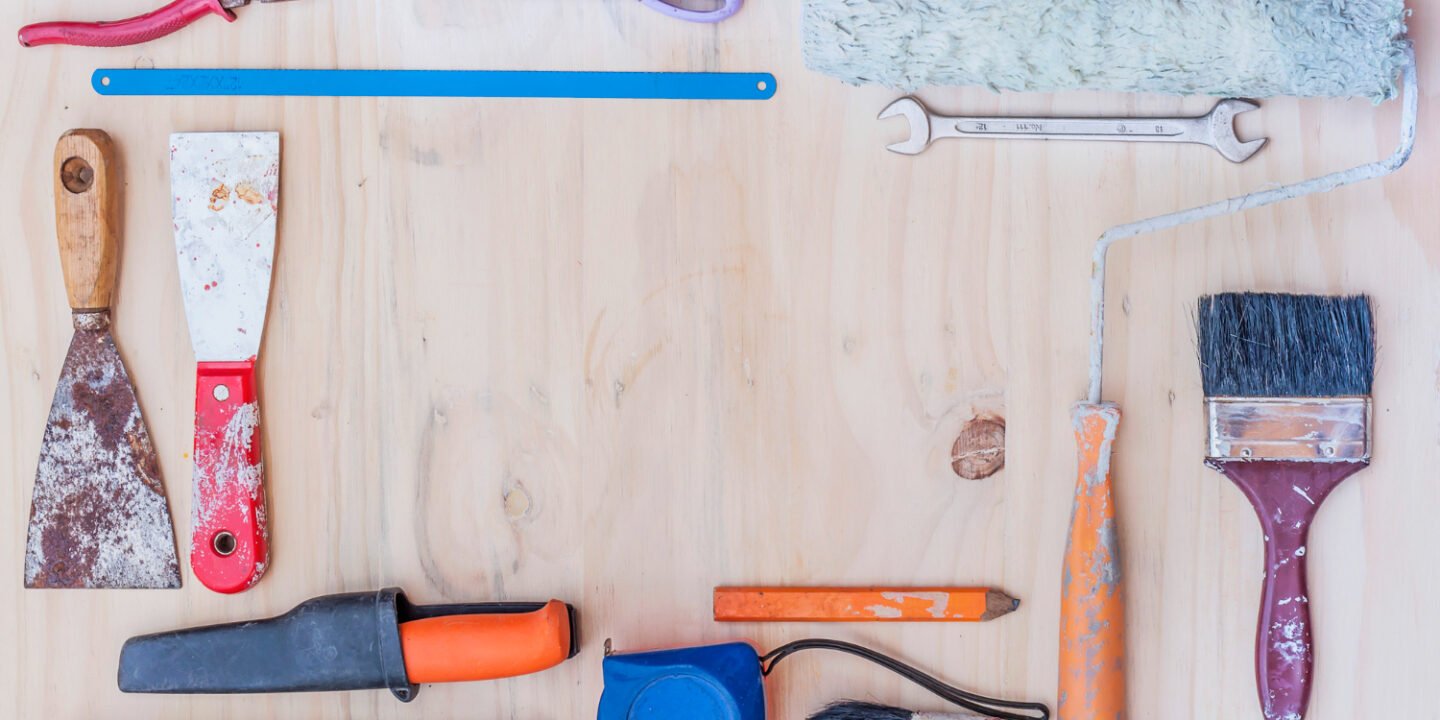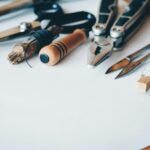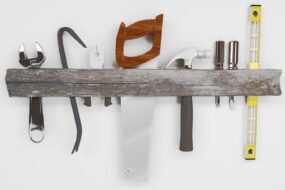
Embarking on DIY projects can be an incredibly rewarding experience. From home improvements to craft projects, there’s a certain satisfaction that comes with using your hands to create, repair, and improve. However, to ensure your projects go smoothly and safely, it’s essential to have the right tools and materials on hand. Whether you’re a beginner or a seasoned DIY enthusiast, having the right equipment can make all the difference in the outcome of your project. In this post, we’ll take a look at the must-have tools and materials every DIYer should have in their toolkit, helping you to be prepared for any project that comes your way.
1. Measuring Tools
Accurate measurements are the foundation of any DIY project, so having the right measuring tools is crucial. Whether you’re building furniture, hanging shelves, or working on small crafts, precise measurements ensure that your projects turn out well.
Essential Measuring Tools:
- Tape Measure: A flexible tape measure is perfect for measuring distances, whether in your home or for smaller items like fabric. Look for one with both metric and imperial units.
- Ruler or Straight Edge: For more precise, straight-line measurements, a ruler or straight edge is invaluable. It’s particularly useful for cutting or drawing straight lines.
- Combination Square: A combination square helps with both measuring and ensuring right angles. It’s perfect for woodworkers and anyone who needs to measure and mark angles.
- Calipers: For measuring internal and external dimensions of small objects (especially in crafts or detailed projects), calipers come in handy. Digital calipers make it even easier to get precise readings.
Pro Tip:
When working with measurements, always double-check your work. Small discrepancies in measurements can compound over time, leading to big errors later.
2. Cutting Tools
Cutting is one of the most common tasks in DIY projects, and having the right cutting tools can make all the difference. Whether you’re cutting wood, fabric, plastic, or metal, you need tools that are sharp, safe, and effective.
Essential Cutting Tools:
- Utility Knife: A sharp utility knife is great for cutting through cardboard, plastic, or even fabric. It’s versatile and comes in various blade sizes for different tasks.
- Scissors: A good pair of sharp scissors is indispensable, especially for smaller crafting or textile-based projects. Invest in a pair that’s specifically designed for fabric or heavy-duty cutting.
- Hacksaw: When you need to cut through metal, PVC pipes, or tough plastic, a hacksaw is your go-to tool. It has a fine-toothed blade that allows for clean cuts.
- Handsaw or Circular Saw: For larger cutting projects, like cutting wood planks or beams, a handsaw or circular saw will give you precision and power. A circular saw is especially useful for larger projects and faster cuts.
- Wire Cutters: For electrical or wire-based projects, a pair of wire cutters is essential. They allow for clean, safe cuts without fraying the wire ends.
Pro Tip:
Always wear safety gloves and goggles when using cutting tools, particularly saws and knives, to avoid accidents.
3. Fastening Tools
Fastening tools are essential for securing materials together in your DIY projects. Whether you’re working with wood, metal, or fabric, having a variety of fastening tools at your disposal makes assembly a breeze.
Essential Fastening Tools:
- Hammer: A hammer is one of the most basic yet essential tools for driving nails into wood or other materials. Opt for a claw hammer, which is designed for both driving and removing nails.
- Screwdrivers (Flathead and Phillips): A set of screwdrivers (or a screwdriver set with interchangeable heads) is critical for driving screws into materials. Flathead and Phillips are the two most common types, and having a few sizes on hand will help with most jobs.
- Cordless Drill/Driver: A cordless drill is a multi-functional tool that can be used for drilling holes, driving screws, and even mixing or sanding when paired with the right attachments. A drill with multiple speed settings and a range of drill bits will expand your DIY capabilities.
- Nail Gun: If you’re working on a large project like installing trim or building furniture, a nail gun can save you a lot of time and effort. It allows you to quickly fire nails into wood or other materials with minimal effort.
Pro Tip:
Keep screws, nails, and other fasteners organized in a parts organizer or labeled containers. This will prevent losing small hardware pieces mid-project.
4. Power Tools
Power tools can significantly reduce the time and effort needed for certain tasks, making them an excellent investment for DIYers. While some of these tools may seem intimidating at first, with proper safety precautions, they can make your projects faster and more efficient.
Essential Power Tools:
- Cordless Drill/Impact Driver: A high-quality drill is a staple in every DIYer’s toolkit. It makes drilling holes and driving screws quicker and more efficient than using manual tools.
- Jigsaw: A jigsaw is ideal for making curved or intricate cuts in wood, plastic, or metal. It’s much more versatile than a handsaw, allowing you to create unique shapes and patterns.
- Circular Saw: A circular saw is perfect for making straight cuts in large pieces of wood, plywood, or MDF. It’s ideal for DIY furniture builds or larger home improvement projects.
- Orbital Sander: An orbital sander is a must-have for any DIYer who works with wood. It smooths rough surfaces, removes paint, and prepares surfaces for finishing, saving you time compared to hand-sanding.
- Angle Grinder: For cutting, grinding, and polishing metal or stone, an angle grinder is a powerful tool to have in your toolkit. It’s versatile and can tackle tough materials that other tools can’t handle.
Pro Tip:
When using power tools, always follow safety protocols. Wear goggles, ear protection, and work gloves to protect yourself from debris and noise.
5. Safety Gear
Safety should always be your number one priority when tackling DIY projects. The right protective gear ensures you can work confidently and minimize the risk of injury.
Essential Safety Gear:
- Work Gloves: Protect your hands from cuts, splinters, and burns with a sturdy pair of work gloves. They’re especially useful when handling rough materials or using power tools.
- Safety Goggles: Keep your eyes safe from flying debris, dust, and chemicals by wearing protective goggles. Always use goggles when cutting, sanding, or grinding.
- Ear Protection: Power tools can be loud, and prolonged exposure to loud noise can cause hearing damage. Invest in a pair of noise-canceling earplugs or earmuffs.
- Dust Mask/Respirator: If you’re working with materials that create dust, like wood, drywall, or insulation, a dust mask or respirator is essential to protect your lungs.
- Knee Pads: If you’re spending long hours on your knees (think laying tile, painting, or working on floors), knee pads will help prevent strain and injury.
Pro Tip:
Make sure your safety gear fits well and is comfortable to wear. This will encourage you to keep it on for the entirety of your project.
6. Crafting and Painting Tools
For those who enjoy crafting or adding a personal touch to their home decor, having the right materials and tools for painting, staining, and decorating is a must.
Essential Crafting and Painting Tools:
- Paint Brushes and Rollers: Whether you’re painting walls, furniture, or small crafts, having a variety of paintbrushes and rollers in different sizes and shapes is essential.
- Paint Tray and Liners: A paint tray makes it easier to apply paint with a roller, and using disposable liners saves you the hassle of cleaning the tray after each use.
- Painter’s Tape: To achieve clean, sharp lines when painting or staining, painter’s tape is a must. It helps to prevent paint from bleeding onto surfaces you want to keep clean.
- Crafting Knife: A precision crafting knife is perfect for delicate tasks like cutting patterns, making stencils, or creating intricate designs.
Pro Tip:
When painting, use long, smooth strokes to avoid brush marks. Start at the top of the wall and work your way down.
7. Woodworking Materials
For DIY enthusiasts who love working with wood, having the right materials is just as important as the tools. From basic lumber to finishing supplies, here’s what you’ll need for your woodworking projects.
Essential Woodworking Materials:
- Wood Glue: A high-quality wood glue is an essential adhesive for joining wooden pieces. It’s stronger than nails in some cases and can be used for detailed carpentry work.
- Wood Stain and Finish: To enhance the beauty of your wood projects, use wood stain to add color and a protective finish to seal and protect the wood.
- Wood Screws and Nails: When assembling wood pieces, wood screws and nails are essential for holding everything together. Ensure you’re using the appropriate size for your project.
- Sandpaper: Sandpaper of various grits is essential for smoothing rough edges, removing imperfections, and finishing your wood pieces before painting or staining.
Pro Tip:
When staining wood, always test on a scrap piece first to ensure the color turns out as you expect.
Conclusion
Whether you’re a novice DIYer or an experienced craftsperson, having the right tools and materials is essential for tackling any project with confidence. From measuring and cutting to fastening and finishing, each tool in your toolkit plays a vital role in helping you complete your DIY projects successfully. By investing in quality tools and materials, you’ll not only improve the outcome of your projects but also make your DIY journey safer and more enjoyable. Happy crafting!








